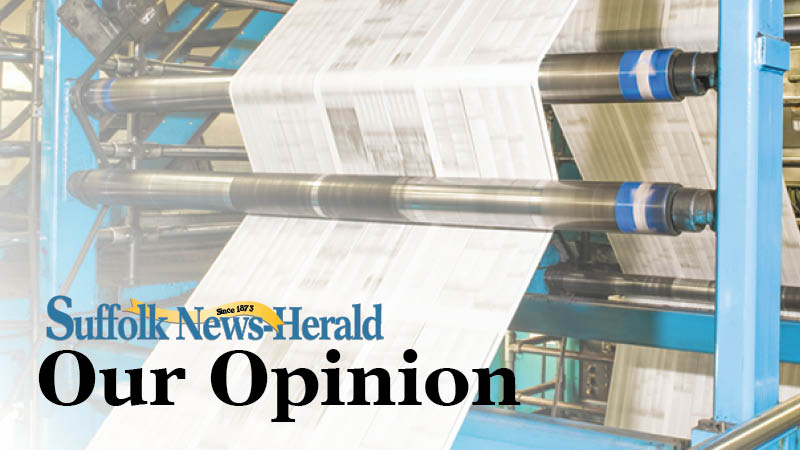Pork deal questioned
Published 8:31 pm Friday, June 7, 2013
Folks in Western Tidewater — and, indeed, around the nation — are expressing reservations over the announcement Smithfield Foods, one of the largest pork producers in the nation, could be sold to Shuanghui International Holdings, a giant meat products company in China, whose chairman, according to news reports this week, is known as China’s “No. 1 butcher.”
From poisonous drywall to toys containing lead and lead paint, the products our nation imports from China come cheap, but sometimes that still means they come with a very heavy price. Setting aside quality issues entirely, those products often come at the cost of good American jobs that have been exported to China, where, in comparison, employment conditions can be brutal and wages can be meager, at best.
Meanwhile, the Chinese government is thought to be sanctioning an unseen cyberwar against America and is known to be building an advanced and expanding arsenal of weapons, which it then sells indiscriminately around the world. And sharing part of the blame for the situation, Uncle Sam continues to obligate the nation to China to the tune of many billions of dollars in deficit spending supported by Chinese loans.
We’ve mortgaged much to the Chinese government and even more to our own materialist culture. But as a nation, should we draw the line at bacon?
Congressional leaders have suggested that might be exactly what happens, and public pressure to postpone or derail the deal is mounting. The company has insisted that it intends to keep everything as it stands at Smithfield — operations, locations, staffing and procedures would all be retained. Many who are outside of the deal are skeptical, and that skepticism has been shared very publicly. In response, a massive media campaign began late this week to portray Shuanghui’s intent as pure, its promises as rock solid and its leader as visionary.
The boards of directors of the two companies will have the last word on the deal, though their word will be filtered to some degree or another by congressional commentary and regulatory rigmarole. In the end, though, the decision is certain to come down to profits. The real question, then, is this: Is selling what is effectively a vital piece of American infrastructure worth the short-term profit, or would there be greater utility to the company and its investors — not to mention to the American people — by retaining predominately American ownership of such an important industry?
The people who are involved in the deal, both in America and in China, would have us believe it makes no difference whether Smithfield Foods is an American company or a Chinese one. Most folks have a simple answer to that: Hogwash.



